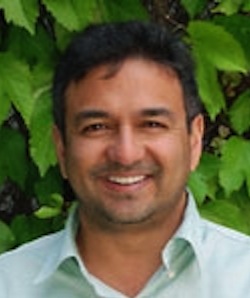
Cities and Climate Change
Noureen Ramzy | April 5, 2015
Responding To: Week 9: Climate Change
Jemila Abdulai
In mid-2004, an advisory was sent out to senior high schools in Ghana’s central region, the nation’s education hub: all schools were to close and students return home. Why? Water shortages. This, just weeks before the nerve-wrecking West African senior school certificate examination (WASSCE) that thousands of university aspirants need to move to the next level of their academic careers.
I was part of that group of students, although my headmistress insisted that none of her students were going home just weeks before the big exam. We stayed and stuck it out; trips in search of water for the school’s maintenance and personal use included. Years later I would have a discussion with other young Africans and realize that what we considered “normal” in Ghana was anything but. All it took was one conversation and insight into how things were done in a similar country.
It’s been over a decade since then, but Ghana is still battling water shortage woes annually. At about the same time the world realized the grave implications of the Ebola outbreak, my country was battling cholera. At last count, the number of cases since June 2014 was 20,500. Unprecedented, but not surprising given the vacuum in access to clean water, higher temperatures, and poor urban drainage systems which contribute to more frequent flooding and unsanitary conditions in key cities.
Climate change. We hear it often, but what exactly does it mean, this popular term “climate change”?
What domino effect(s) result from the rainy season arriving a few months late or not at all and how does that affect not just the farmer and the agricultural sector, but also the frequency with which girls from the affected communities go to school or miss school? Ultimately, how many of those children stand the chance of representing their community in parliament to ensure their communities receive essential services or to warn against oil contracts which pollute water bodies? Down the line, how does it shape perceptions of what should be possible when it comes to policy formulation and implementation around sustainability or, for instance, negotiating with the government to explore more sustainable energy sources beyond coal?
Beyond frightening statistics, we should make it a point to map out the domino effects and explore interventions at the individual, local, national, and international levels. We should look at the bigger scheme of things, to investigate the interactions between the micro and macro issues, to compare between and across countries, and to ensure that global policies and dialogue factor in local realities and needs.
As Dr. Kim rightly pointed out, we can only guess at the ways climate change will impact the world as we know it. The poorest 40 percent, the very people who are vulnerable, are valuable to finding sustainable solutions. After all, they have lived through it, they survived, and they experience the dynamics at work. How else will we overcome these challenges but together?
Jemila Abdulai currently works for the African Development Bank where she manages events across Africa, liaising with development practitioners in the government, private sector, and civil society.

Noureen Ramzy | April 5, 2015

Marina Djernaes | March 22, 2015

O. Felix Obi | March 22, 2015

Rajesh Sampath | March 22, 2015

Claire Cullen | March 21, 2015